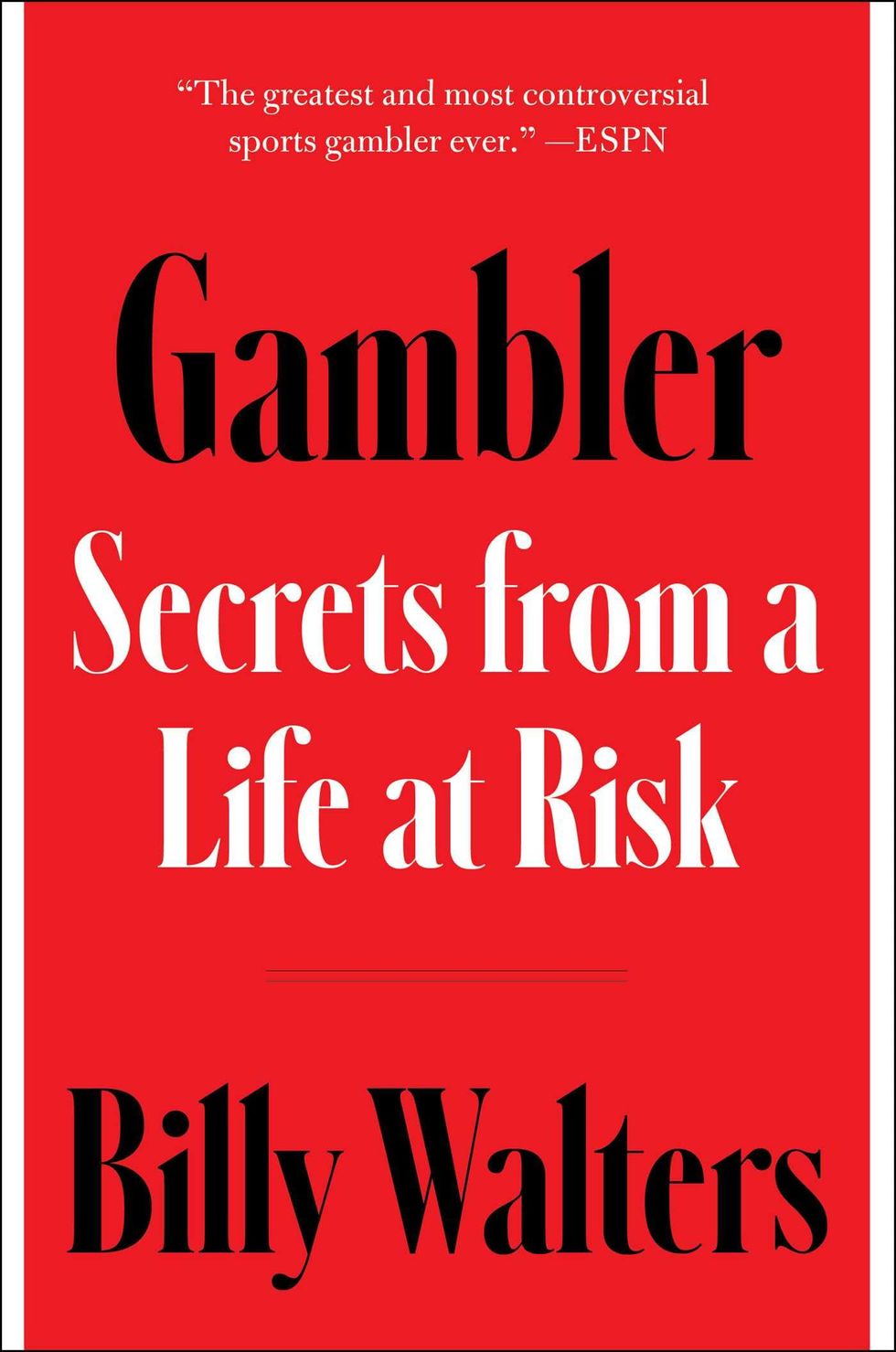This piece is part of a series of stories about today’s sports-betting boom and how to combat a gambling addiction. To read the rest of the stories, click here.
FIVE-HUNDRED MEN sit in chairs arranged in rows on the geometric-patterned carpet of the casino’s Grand Ballroom. Men in their 20s, in their 50s, in their 70s, wearing golf shirts and chinos and shorts and hats on backwards, sit and listen. It’s noon on a Friday. On the riser up front: A heavyset, dark-eyed man who goes by Spanky, himself the mastermind of the three-day sports-gambling conference called Bet Bash, is conducting an obsequious half-hour Q&A with a titan of the industry—the man everyone calls the best, the most successful sports gambler of all time. A man without whom there would be no sports gambling as we know it today! A man whose memoir hasn’t even come out yet but is already charting on Amazon because yesterday the news broke that in the memoir the man alleges that golfer Phil Mickelson (the man’s former gambling partner) has bet $1 billion on sports and once tried to bet on his own team (Mickelson responded to the allegations here). A man who has won and lost hundreds of millions of dollars, who is beyond rich, who is a convicted felon and a respected philanthropist, and who is, in the eyes of the men in this room—the 1,000 eyes fixed upon him in the ballroom of the Circa Resort & Casino—not just a man. He is the fucking man.
In his low, husky voice, shuffling his notes, Spanky—real name Gadoon Kyrollos, host of the podcast Be Better Bettors—asks the fucking man one final question, and it’s not exactly a zinger but it’s the one all of the men would ask if they could: What’s the one piece of advice he has for aspiring sports bettors?
Billy Walters, 77, looks out at the room for a minute, searching for something meaningful to say. “The one…” He holds the mic to his mouth, trails off, thinking. He’s wearing a golf shirt, untucked, and khakis, legs spread.
“Well, it’s work, work, work,” he says in the grainy Kentucky drawl he hasn’t lost after 35 years of living in Las Vegas. “The harder you work, the luckier you get.”

Walters attends the Sports Gambling Hall of Fame induction ceremony on August 11, 2023, alongside fellow inductees Scotty Schettler and Richard Schuetz.
Work hard. The cliché of all cliché advice, and yet coming from Walters, it doesn’t sound that way. It is what he has done, after all, and what he still does. On Saturdays and Sundays from late summer to mid-winter—football season, college and pro—he rises at 4:30 a.m. to start going over his numbers. His numbers are the point spreads he and his team of analysts have determined to be the correct line on any given game. He’s got all kinds of algorithms and methodologies, which—delightfully for us, and shockingly to many in his business—he presents in careful, mathematical detail for nearly 50 pages of his boisterous new memoir, Gambler: Secrets from a Life at Risk, a book he says he wrote for three reasons: to warn people of the dangers of addiction, to set the record straight about his dealings with Mickelson and on his conviction for insider trading (he spent 31 months in federal prison), and to share the ways he analyzes sports games before placing bets on them. (“It includes charts and numbers that I’ve never shared before,” he writes, thrillingly.)
He works hard because he discovered that working hard works—a lot better than gambling while drunk, the way he used to. These days he’ll bet $20 million a day on football, plus college basketball—as little as $8,000 on a college game or perhaps $3 million on a primetime NFL matchup.
The men in the ballroom know this—they know he’s probably bet billions over his 60-year gambling career—and they want to be like him, this man who calls himself a “former degenerate gambler.” Some may be veterans, used to placing bets with a local bookie. Others, the young ones especially, probably have accounts with DraftKings or Caesars Sportsbook or one of the other mobile sportsbooks that have exploded in popularity over the past five years.
Spanky extends to Walters his humble, grandiose thanks, and the 500 men rise to their feet in an ovation. They have heard the master speak. Tonight in this same ballroom, Walters will be inducted into the Sports Gambling Hall of Fame, which is a thing that actually exists thanks to the ingenuity and doggedness of Spanky, who had the idea for it last year. Walters walks down the center aisle, stopping for selfies with hyperventilating fans who find the courage to approach him. In the back of the ballroom, as he nears the door that will get him away from the mob, he sees me—the journalist he recognizes from our Zoom conversation a few weeks ago. He zags toward me, walking faster, puts his bony hand on my shoulder, ignoring the room abuzz with dudes watching his every move, grown men trailing behind him like puppies trying to sniff the alpha’s ass. He leans in and asks me a question before I can even say anything.
He asks: “Did you see Opportunity Village?”
It was surprising, and touching, that these were his first words to me.

THIS IS NOT a self-help article. It is not meant to be instructive, meaning that unlike many stories about people we idolize, its purpose is not to give advice on how to be more like Billy Walters. It is an admiring article, for sure—Walters is a remarkable person. We might wish we could be like him, but we probably can’t. Despite the lengths he goes to in his book to explain his gambling methods, and despite his generosity in speaking with me and answering any question I asked, the answer to the one question everyone has—how, exactly, did he become the best sports gambler of all time?—is the hardest to explain.
Walters has had two different gambling careers. In the first, he was addicted to both alcohol and gambling itself. He did okay but swung wildly between winning and losing because alcohol impairs judgment and logic, two keys to success in sports betting. His second career has been as a sober, disciplined bettor, during which he has made hundreds of millions of dollars, legally, by employing teams of analysts mining data Walters believes are important to determining the outcome of a game. They spend their workdays researching and analyzing everything from injury reports to home-field advantage to the weather at game time. And they bet.
There is no comparing what Walters does with what you and I do on betting apps. He has mastered gambling to the point where it’s no longer really gambling at all—at least no more than other forms of large-scale gambling, like hedge funds and investment banking. Traders buy and sell stocks based on the information they can gather about various companies, just as Walters’s firm, the Walters Company, gathers information on players and teams.
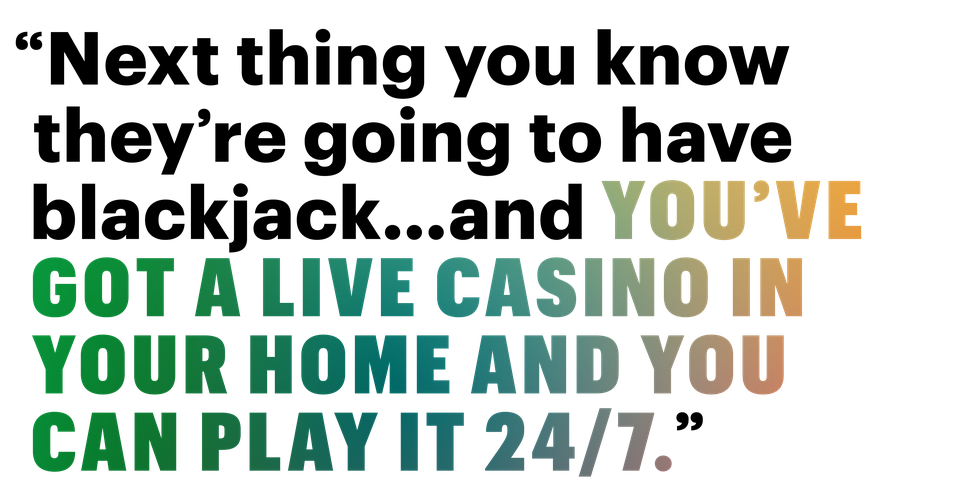
But gambling is everywhere now. In 2018, the Supreme Court overturned the Professional and Amateur Sports Protection Act, which made betting on sports illegal in pretty much every state except Nevada, a decision that Walters says led to the current proliferation of sports gambling in the United States. Apps, websites, in person, on TV—it’s everywhere. Just three days before this ceremony, ESPN announced the launch of ESPN Bet, which promises to be a juggernaut.
Walters worries about all of this. “These companies are using sports betting to get into other states, and next thing you know they’re going to have blackjack, everything else, and you’ve got a live casino in your home and you can play it 24/7,” he says. “My biggest concern is a guy at four o’clock in the morning sitting in his basement with his last $200, playing blackjack. Sports betting—I think they can monitor that enough. But some guy addicted to blackjack while his family sleeps upstairs…” He shakes his head.
With this book, he’s not telling anyone to try to beat gambling addiction by becoming a professional gambler, even though, improbably, that’s worked for him. That’s what’s so fascinating, even confusing, about the 50-page section in which he reveals his gambling methods in math-textbook detail: By showing you everything he does—the sheer number of data points, the complexity of the ratings systems, and the knowing how to synthesize it all into a bet—most gamblers will probably come away fascinated but shaking their heads with the crushing realization that they could never, ever do it themselves.
Not the way he does it.

BILLY WALTERS WAS hustling pool in dusty bars near Louisville when he was seven. He had two paper routes—one in the morning, one in the evening. His Uncle Bill (on his dad’s side; his dad died when Billy was one) was a redoubtable poker player, and his Uncle Harry (on his mom’s side; his mom left him to be raised by relatives) owned the Q&R pool hall in town. Billy practiced until he could beat the men in the pool halls, once betting a guy $223—all the money Billy had saved from delivering newspapers on his bicycle—that the guy would miss his last shot, an easy shot. Billy figured he knew the guy’s choke point—the amount of money it takes to make an opponent so nervous that he screws up. He pegged this guy as a $100 choke-point player, meaning that if you bet more than $100 against him, he would tense up. Suddenly everyone in the Q&R was watching, and the man, who had been coasting to a victory over this little punk, choked.
Billy learned an important lesson about gambling and emotions that day: They don’t mix. But it would take several decades of addiction to alcohol, cigarettes, and gambling; two failed marriages; and multiple fortunes lost and won and lost again before he knew what to do with that lesson. It was just too much damn fun. It was always a career for him, but for the first 20 to 25 years of that career—from his late teens to his early 40s—he loved the lifestyle too much. He was a good enough gambler that he could survive the wild wins and sometimes wilder losses, but he hadn’t yet figured out how to make it a job.
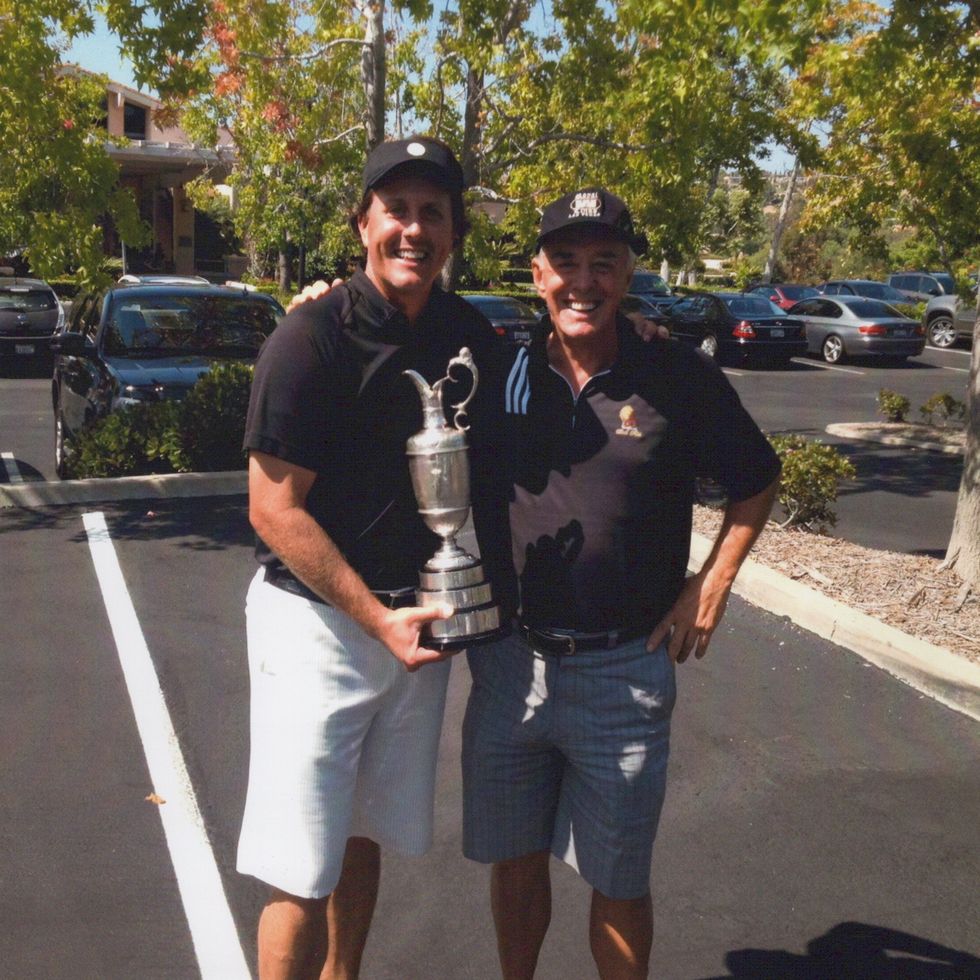
Mickelson and Walters with Mickelson’s Claret Jug outside of their club in Rancho Sante Fe after Mickelson won the 2013 British Open.
Pool halls turned into back-room gambling parlors around Louisville, where Walters ran poker games that men would travel for miles to play in. He started betting on football and basketball. In his early 20s Walters took up golf, which became the next realm for his unrelenting betting habit (and one that would eventually lead him to Mickelson). He worked at and eventually ran car dealerships, where he would challenge himself to clear cars off a lot faster than anyone else could. He fell in with a loose, local betting syndicate called the Computer Group because its creator, Michael Kent, had devised a computer model for betting against the Vegas line on sports games.
What personal life he had in his 20s and 30s was marked by two divorces and the births of three children. One of those children, Scott, was found to have a large tumor in his brain when he was seven years old. It was terminal, the doctors said. “They told us if it grew as much as the width of a piece of paper, it would shut off his third ventricle and he would die,” Walters told me. “And they give him no chance, actually. I mean, zero chance.”
Through these years he smoked and drank bourbon and vodka (“and if they weren’t around, I’d try something else”), often to the point of finding himself in a drunken puddle at dawn, broke again, usually having won big and then lost it all again.

AROUND 1975, WHEN Walters was 30, he invited a woman he was interested in, Susan Humphries, on a trip to Vegas with some gambling friends they had in common. She accepted. Walters writes that he started the trip by “doing my best to consume the airplane’s liquor supply on the flight to Vegas.” Once there, “I was so buzzed that I couldn’t wait with everyone else for the charter bus,” so he took a cab to the Riviera Casino. “By the time Susan arrived at the hotel an hour later, one of her friends found me face down and blacked out at a blackjack table. Dead broke.”
They were married a year later and will celebrate their 47th wedding anniversary on September 21. At this point in his career, Walters was in what he calls his “degenerate gambler” stage. He made money, sometimes seven figures in a year, betting on sports and poker and playing casino games, yes. But he was always up and down, up and down—the degenerate gambler’s version of living paycheck to paycheck. He also had his car dealerships, and had begun to make some money buying and selling real estate. But gambling was his primary vocation. Susan knew gamblers and didn’t try to change Billy. A passage from the book about seven years into their marriage: “A bit of blackjack turned into another reckless binge of gambling and drinking that ended at 4 a.m. When I dragged my sorry, drunken ass home and into bed, Susan asked, ‘How’d you do?’
‘Well, it was really, really bad.’
‘How bad?’
‘I lost the entire million. Plus $200,000 in credit.’
‘Don’t worry about it,’ my rock of a wife said. ‘We’ll get it back.’”
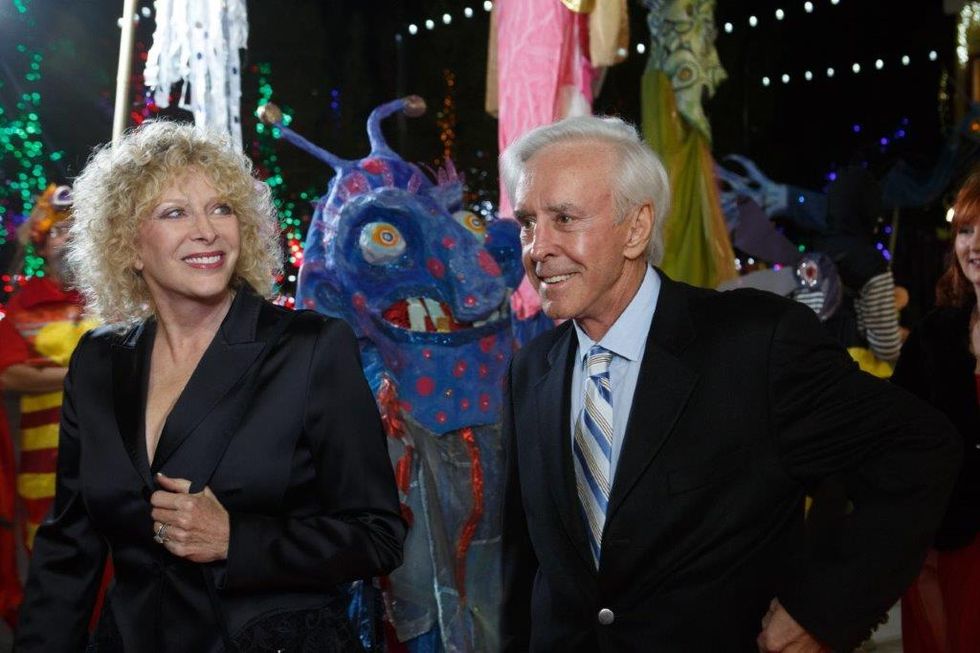
Billy and his wife Susan at Opportunity Village’s Camelot event.
This is how it went for the next 15 years. Walters was a professional gambler, but he was also a championship drinker. The drinking kept him from being the truly great sports bettor he would later become. So it was a strange life: Doing something he loved for a living, but doing it recklessly. One addiction, to alcohol, was holding him back from being an even more successful bettor—his other addiction.
In 1989, one of Walters’s dear friends, a gambling buddy named Sarge—a sweet, ugly guy they’d nicknamed “Handsome”—died of cancer, just a few weeks after his diagnosis. Walters responded by drinking himself silly one night at the Horseshoe, the famous casino owned by his friends, the Binion family. He was throwing money around, betting way beyond his means, and generally making an ass of himself. In addition to being a public meltdown, it was a turning point for Walters.
He hasn’t had a drink or smoked a cigarette since. That’s the first remarkable thing that came out of that night. “I’ve had a lot of rock-bottom moments,” Walters told me during our Zoom interview. “When I drank, my personality changed, my thought process changed, and there wasn’t anything positive that came out of it. I was addicted to something that was destructive to me and my loved ones.”

Ask him how he quit smoking and drinking cold turkey and he answers, “You quit. You man up and quit. You figure out real quick what’s the most important things in your life, and you don’t BS yourself, and you make whatever the right decision is. And you don’t blame others.” It’s a frustrating answer, and yet it makes some sense: Four punches in the face had told Walters he wasn’t going to live forever: Sarge’s death. Turning 40. Watching his mother die from a disease brought on by cigarettes. Then there was his meltdown at the Horseshoe.
The gambling, though? The answer to killing that addiction turned out to be not quitting at all, but rather mastering it. Controlling gambling so that it couldn’t control him. Turning his brain on it. “The Gambler’s Anonymous I attended, it was in my head,” he says.
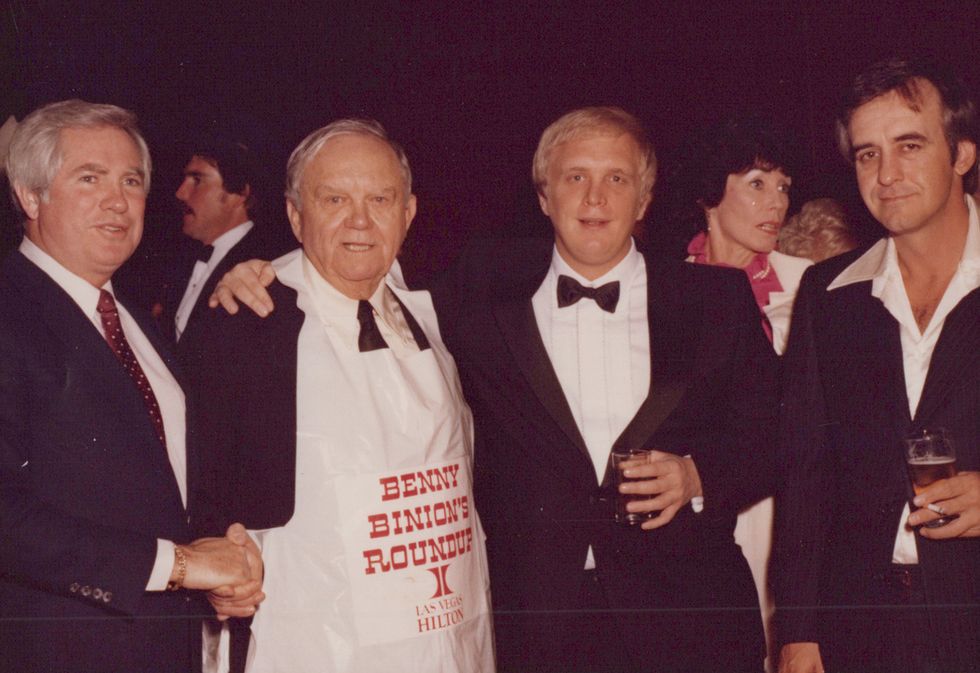
Chip Reese, Benny Binion, Ken Gragson, and Billy Walters at Benny’s 80th birthday party in 1984.
Over the last 35 years Walters has built a sports-betting empire unlike anything the industry (they call it an industry) has ever seen. No wild emotional swings like the one that fueled the reckless nights after Sarge died. No hunches like the one that told him to bet $223 of his paper-route money on a stranger’s choke point. (Although that was a pretty cool move.) He built the empire slowly, learning over the years which data points were the most important, which were the least important, and how to synthesize them all into a good bet. And he did this for thousands upon thousands of games. Crunching numbers, making bets. That’s his empire.
“I was so addicted to something that I couldn’t control—it’s very destructive, make no mistake about it,” Walters says. “But I’ve been able to overcome that and turn it into something that I have complete control over—and actually became, some will say, the best in the world at it. I’ve never met anyone else that ever became successful at it after being so addicted to it.”
The difference between a gambling addict and a professional gambler, Walters tells me, is that an addict gets just as much of a charge when he loses as when he wins. An addict doesn’t bet to win, an addict bets to bet. The professional bets to win. Having been both, Walters’s advice to the addict is, “Well, if he can’t quit on his own, he needs to try to get some professional help, because all it’s going to do is get worse. It ain’t going to get better.”
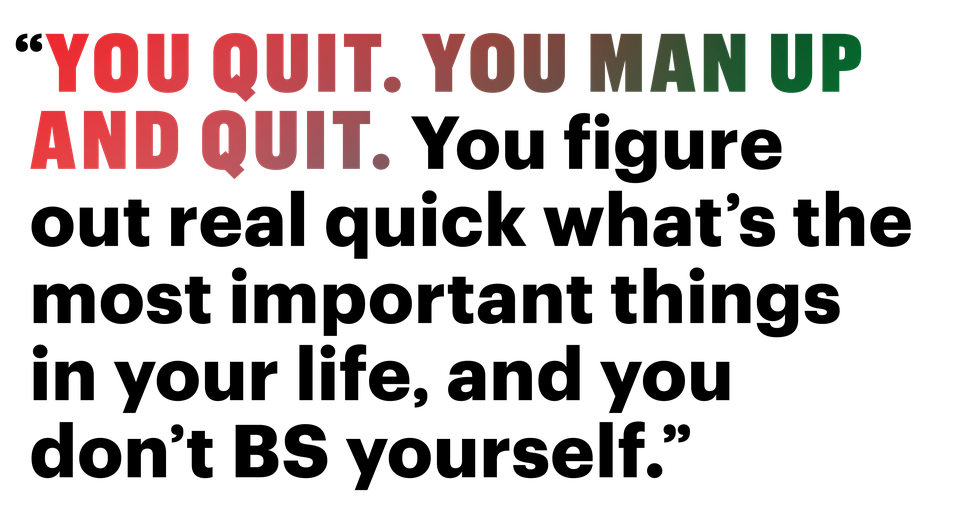
To win at sports betting, you need information. Walters’s enormous success is built on data. It’s unsexy. The Master Class section of Gambler is both fascinating (to see the amount of information about a game that goes into Walters’s decisions) and mundane (like reading the process a world-class hedge-fund manager uses to make investments). Some sample sentences:
“The repeat cycle is then in place—the new power ratings are combined with game-specific factors (step 2), home-field advantage (step 3), and an assessment of injuries (step 4) to determine the next game prediction (step 5). This is shown in step 8.”
“If Temperature is 10 or below Degrees Fahrenheit: +1.75 Home.”
“In that example, the True Game Performance Lever is 14 (the net score) + the old power rating of the opponent (-4.2), and the net injuries (4.7-6.5=-1.8).”
“As you’ll see in the chart, 3 is relatively more valuable than 11, 12, and 13 combined, which are only worth 6 percent total.”
“Again, remain disciplined.”

THE MORNING WALTERS sat on a stage answering questions from Spanky during Bet Bash 2023, dozens of disabled adults were receiving rehabilitation and treatment at Opportunity Village, the place Walters asked me about after the Q&A. OV is a 17-acre campus about four miles from the Vegas Strip, offering therapies, nursing care, job training, employment, recreation, and housing to disabled people. When Walters first heard about it in the early 1990s, it was being run out of a dark warehouse in downtown Vegas. Today its campuses are a model of treatment, employment, and rehabilitation. Scott Walters, Billy’s son, became a regular, both as a recipient of care and a provider of support to other clients. Now 56, after being given just 30 days to live when he was seven years old, Scott holds a culinary degree and lives with some independence—a life for which Walters gives Opportunity Village unending credit. He and Susan have helped raise more than $500 million for it.

Susan, Billy, and Scott at Opportunity Village’s Camelot event.
That’s why the first thing he said to me in the ballroom at the Circa was not about the Sports Gambling Hall of Fame, or his book, or the heatwave. It was, “Did you see Opportunity Village?” He wanted to make sure I saw it, and not just saw it but witnessed it. When he connected me with OV for a tour, Walters wasn’t asking me to write about Opportunity Village in this story. He wasn’t looking for publicity. He did it because we had talked about our sons: His, debilitated by a brain tumor at age seven and doing well at age 56, mine, debilitated by cancer and brain damage, also at age seven, and still fighting at age 14. Walters thought I might want to learn about the kind of life that’s possible for people like our sons.
“My son, he made such a much better man out of me,” he says. “There were things that I became aware of, things that became important to me that weren’t before. If he hadn’t had the issues he had, who knows where my awareness would be today?,” he says. He pauses, stares straight ahead.
He’s crying.
“Yeah. He’s my mentor.”

A FEW HOURS after the Q&A with Spanky, Walters is wearing a tuxedo and Susan a sparkling gown. They are standing in the sportsbook at the Circa, a 1,000-seat amphitheater in the middle of the casino floor. In front of the audience, towering screens show live sports. Slot machines bing and click, cheesy casino-rock plays in the background, cigarette smoke hits you every now and then. In the corner of the sportsbook floor, in front of a cordoned-off section of seats, is the new Sports Gambling Hall of Fame. It’s a room carved into the wall, the size of a large coat closet, its walls hung with about 100 small plaques, 10 of which honor the inaugural honorees. The rest are blank, for future inductees.
Walters’s plaque reads: “Billy Walters is known for being the greatest sports bettor of all time. He commands respect from every prominent bookmaker in the world and is known for contributing as aphilanthropist [sic] to many causes.”

There are a couple of speeches, and a lot of photos. Above the tuxedoed Hall of Famers (well, not all tuxedoed—the daughter of Frank “Lefty” Rosenthal, the gambler who inspired Robert De Niro’s character in Casino, is statuesque in a turquoise gown), the ball games play on the huge screens. Tourists look down at the cluster of well-dressed people and the plaques, then turn back to their watery drinks and their small-time, weekend-in-Vegas action.
After the unveiling, it’s back up to the ballroom, which is now darkened and there’s a bigger stage and a bar in each corner. Here the men are inducted, one by one, with speeches upon speeches. There is a lot of applause.
“The next inductee…”
“The next inductee…”
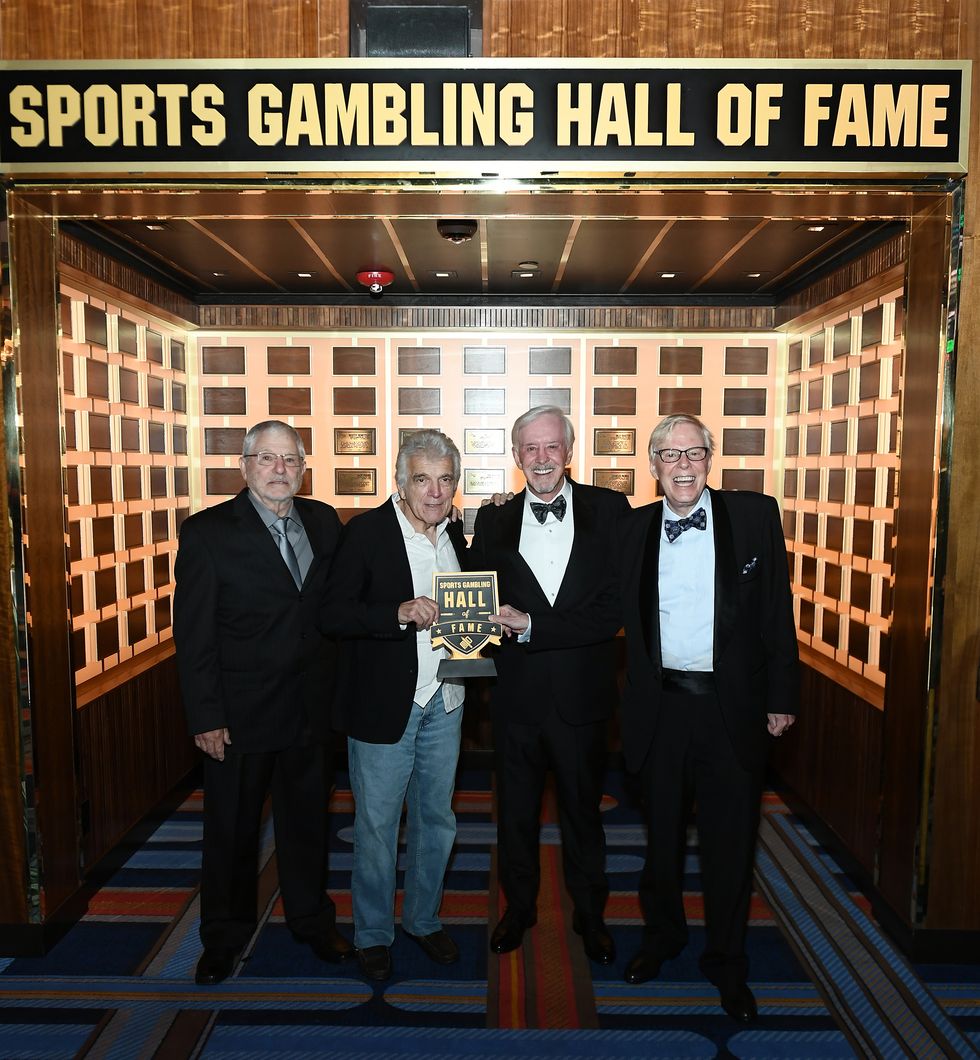
Walters gets inducted into the Sports Gambling Hall of Fame.
The video montages played, the speeches were funny and heartfelt. What lives these guys have lived. The initials “F.B.I.” were spoken many times, and there were jokes about the number of times the new Hall of Famers had tangled with law enforcement, Walters included.
He was the final inductee of the evening. Not because they did it alphabetically—they didn’t. He was last because he’s Billy Walters. The fucking man. Best Picture. He received the only standing ovation of the night because his life is the kind of success story that’s inimitable no matter how many times you read his book, no matter how many of his betting truisms you follow. But you can be like him in one way—by remembering this truth above all others: The harder he worked, the luckier he got.

Ryan D’Agostino is Editorial Director, Projects at Hearst, and previously served as Editor-in-Chief at Popular Mechanics and Articles Editor at Esquire.
Read More
Elida Grumbles

